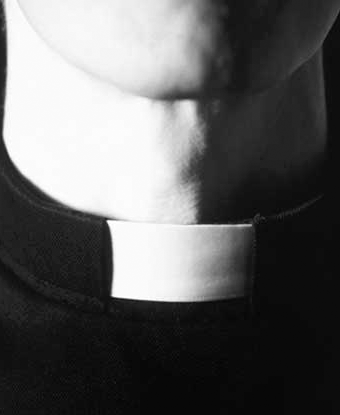
This is a response to Rachel Held Evans’ request for men to write about the women, femininity and the Church.
When I became a stay-at-home father several years ago, I slowly realized that all the theology I had studied in seminary, if I were honest, didn’t connect with my new reality of diapers, spit-up and frozen breast milk.
The liberation theology, the ontology, the epistemology — all the ologies of ologies — rarely intersected with how I lived my life.
And it should come as no surprise. The Bible is a male document that sings the praises of heroes with mighty deeds and works. Now, some like John Piper and others employing a severe and chaueventistic reductionism, will take this to mean that God has given our faith a masculine feel, when in reality it only means that our sacred texts were written at a time when women were belongings first and human beings second.
In fact, the miracle of our sacred texts is that women are featured in it at all as disciples (Mary of Magdalene), as teachers of Jesus (the Syrophonecian woman), and as equal to the Apostles themselves (Lydia). Still, even the Gospels, as revolutionarily inclusive of women as they are, show a Jesus who might welcome the children but who also criticizes the work of Martha the home-maker while eating her food, washing his feet in her basins and staying under her roof.
It is certainly revolutionary that our faith follows a homeless man, but sometimes, I can’t help but think how much more revolutionary our faith might be if Jesus had actually kept a home like Martha.
There is a gaping hole in the Bible that no doubt women have known about for ages. The day-to-day experiences of the home are largely absent from our sacred texts. For as much as the American Christian tradition lauds the family, the Bible itself, on the whole, doesn’t because it doesn’t, on the whole, give anywhere near equal representation to women and to what is traditionally a woman’s world.
The concern instead is for the broad narratives of faith that overwhelmingly feature men as central heroes, minimizing women leaders like Miriam and turning matriarchs like Sarah into a shrewish laughingstock, Rachel into a petty mother who plays favorites, Hannah whose worth is in giving up her longed-for chance to be a mother.
Child care and homemaking are the assumed background noise against which the story of God unfolds, so unimportant it doesn’t bear much more than a mention. In the wilderness, we hear of the great things that Moses and God do together. We do not hear of the women who managed to keep children fed, of falling behind in the caravan in the desert because of sick child or a temper tantrum. We do not hear of what it took to entertain the children in the monotony of the dark wilderness.
We hear of the wonderful works of Paul, galavanting all over the Mediterranean, telling people not to marry because it is a burden. We do not hear of the women who were the first to pass on this new faith to their children — the women who likely created, or at least carried out, the first (unofficial) catechism into the next generation in between the cooking, cleaning, hosting and homemaking, the women without whom the faith would have been lost.
This is a glimpse of what many women have expressed to me before, an ever-present frustration that their faith’s sacred texts do not mention them, do not consider them, do not represent them as equals.
Our faith may have a masculine feel, but it is also a sinful one, an unjust one, a blinded one.
So what does this mean for someone like me, who has experienced life as a stay-at-home parent, a role once reserved exclusively for women, and now as a postulant for the Episcopal priesthood, a role reserved exclusively for men until 1979, a role where being male still gives one a cultural and statistical advantage, even if it is unacknowledged?
What does it mean for me as I move from being a father to becoming a Father+?
What does it mean for a man, privileged by the luck and lack of a single gene, to worry about my cultural privilege in religious institutions? Is there something paternalistic in and of itself about me going out of my way to defend women’s right to be fully human? Does a woman need a man to complete the argument that women are equal and should have equal access to religious power?
After all, it has always been women who have in an act of righteousness seized religious power from men in ways that refuse to be denied, from Joan of Arc and Teresa of Avila to Jarena Lee and Aimee Semple McPherson.
No, to my mind, the power in an exercise like this one organized by Rachel Held Evans is that it gives a man like myself a forum simply and publicly to say, “I am culpable in this mess.”
Despite being an advocate of egalitarianism. Despite being a feminist. Despite being a stay-at-home dad.
And I am sorry, and humbly repent, for all that I have done and all that I have left undone as my sisters and fellow sojourners seek equality while I glide through denominational structures, powers, hierarchies and institutions with an ease that I truly should not.
When I say to my denominational committees that my first commitment is to my children not the church, I am not looked down on, but am rather held up aloft as a progressive example of male tenderness.
When I bring my children to work at my parish, no one mutters about me confusing my home and my work life or about not being professional. Instead, I am embraced, smiled at and encouraged to set an example of a male who is a primary caregiver and a father before an employee.
When I am express concern that I won’t be able to complete my discernment process within the allotted timeframe because of my obligations as a father, my commitment to the church is never questioned.
When a church committee looks at my resume and sees a three-year gap in my employment while I was a stay-at-home father, they do not question whether I lack the skills for the job because I spent months changing diapers, cleaning house, and cooking for my family.
Instead, being a stay-at-home dad adds to my allure as one seeking ordination, a mark of my sensitivity, my patience, my ability to let the children come to me. I’ve been told that being a stay-at-home dad will give me a unique insight as a minister. I’ve been told that it makes me special.
Would I be in the same situation were I woman, a mother?
I think we all know the answer to that question.
What makes me special is that my anatomy means I am privileged in whatever I do.
Now, perhaps this is not my fault or maybe I downplay what others see in me as a potential priest. But, at the same time, I do nothing to question this system that benefits me even as I subvert cultural expectations.
Such is the unjust privilege of being a male in the church.











